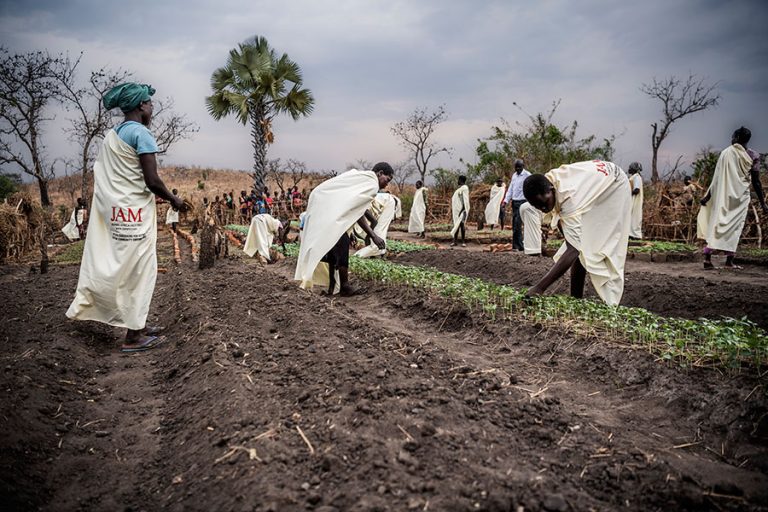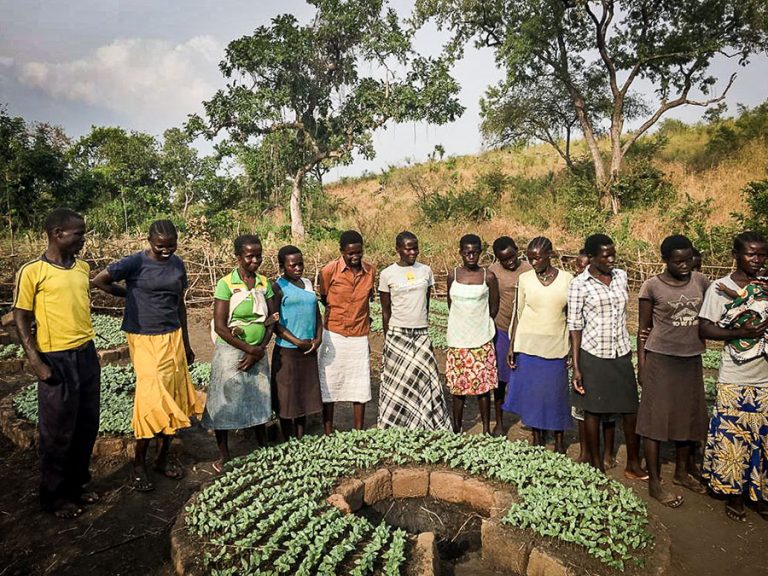A joint evaluation headed by UNHCR and the Office of the Prime Minister of Uganda, who is directly responsible for the department of refugee affairs, was recently conducted where JAM Uganda was appointed as the lead livelihood partner in the Imvepi refugee settlement.
This appointment enables JAM’s team on the ground to continue implementation of initiatives that will increase food security and enable
sustainable livelihoods for refugees.

At a time when COVID-19 threatens the very existence of the world as we know it, vegetable gardens are providing a way out of poverty and allowing communities to sustain themselves. A diet rich with micronutrients means improved nutrition outcomes and is vital in the fight against disease.

JAM Uganda’s food security and livelihoods team are led by George Lukayi, a senior agronomist at Imvepi. Through this initiative, JAM Uganda has already provided 153 000 meals to 5 100 beneficiaries. George’s experience in integrated farming techniques has also assisted 1 375 individuals with the establishment and maintenance of nutrition gardens, ensuring a lifeline for these refugees. This team’s teachings have resulted in persons of concern (POC’s) as they are known in the camp, being able to sustain themselves even in lean or dry seasons. Young pregnant and lactating women are taught what is best to plant and consume, for increased production of breast milk, providing further nutritional value to infants as well. Making use of all vegetable waste from the kitchen has developed into what is known as a kitchen garden where every item of waste is utilised in the gardening process. Wastewater is filtered into the garden and the acidity neutralised with ash, whilst manure droppings from the poultry unit next to the kitchen is utilised to enrich the compost. When asked about the success of this project, George had the following to say, “Teaching farming techniques to young women is providing them with an income because they sell their produce. With this income, they can pay for their children’s school fees and even buy shoes and clothing as well.”
Despite challenges such as the long walking distances between plots, as well as the lack of available freshwater sources near the gardens, JAM Uganda has persevered and continues to find ways of making this project successful, and enabling a better life for refugees.
To donate towards sustainable livelihoods for refugees in Uganda, click here
Click here to download article


